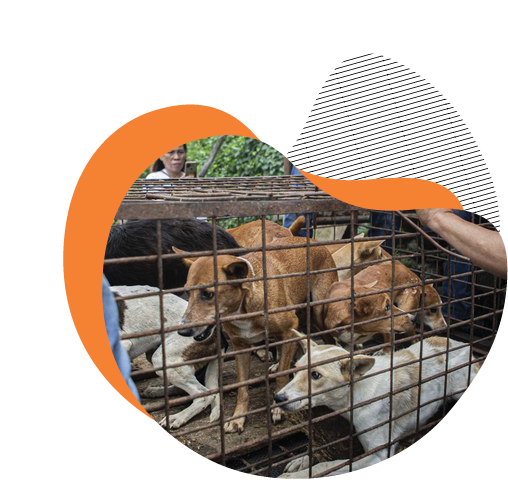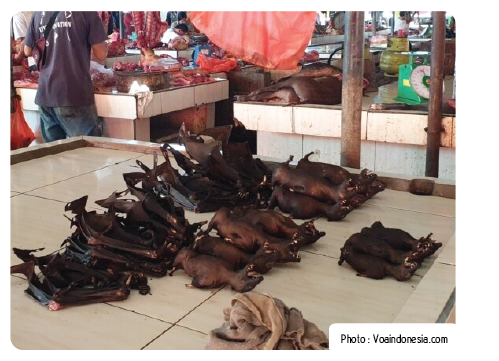Extreme Tomohon Traditional Market: a Cultural Celebration or a Threat to Wildlife?
Starting from July 21 2023, the local government of Tomohon, a city in North Sulawesi, has officially banned the trading of cats and dogs at the ‘Extreme’ market. This decision aligns with the directive of Tomohon’s mayor, Carrol Senduk, who aims to protect thousands of animals from ruthless beatings and slaughters, which later on will be sold and consumed by local residents.
By: Azmi Masfiyati
Translator: Winaya Satasya
Photo: Taufan Bustan/BenarNews

North Sulawesi has become the region with the largest wild animal meat market in Southeast Asia. The consumption of wild animal meat is considered to be a part of the culture in the area. It is commonly served during religious celebrations, feasts, and family gatherings. Additionally, local residents also claim that this meat serves as a protein substitute and is believed to have medicinal properties for treating diseases.
The distribution of wild animal meat for consumption poses a threat to biodiversity conservation. The regulations governing this trade are weak, allowing traders to maximize their economic opportunities by dealing in wild animal meat. Such trade can lead to unsustainable hunting practices, ultimately endangering species and increasing the risk of losing ecosystem services provided by these animals.
The research results from 4 traditional markets in Tomohon, namely Langowan, Kawangkoan, Beriman and Karombasan market, revealed the presence of 8 types of wild animal meat being traded. These animals range from reptiles to mammals, which include wild boars, dogs, flying foxes, blonde bats/ fruit bats, cats, pythons, monitor lizards and rats.

Among all the wild animals traded, there is one species that is actually endemic to the Sulawesi region and
that is the Sulawesi flying fox or paniki yaki (Acerodon celebencis). The species is under CITES Appendix II, which comprises species that are not necessarily currently threatened with extinction but may become so if trade is not closely controlled (CITES, 2017). On the other hand, the other species found at the market are not on the list of protected species (Liana & Witno, 2021).
Thus, what do we need to do in our next step? The introduction of the regulations banning the dogs and cats trade is a good start to support further regulations against wildlife trade. Wild animals, after all, play a crucial role in maintaining ecosystem balance rather than being consumed. Therefore, educating and raising awareness among local residents and students can be a solution to change perspectives regarding the appropriate utilization of existing wildlife.
Source:
https://www.mongabay.co.id/2023/07/28/akhirnya-pasar-ekstrem-tomohon-dilarang-jual-anjing-dan-kucing/ diakses pada tanggal 1 Agustus 2023
Liana, & Witno. (2021). perdagangan satwa liar di pasar tradisional dan pasar modern di sulawesi utara.
Jurnal Penelitian Kehutanan Bonita, 3, 28–34.